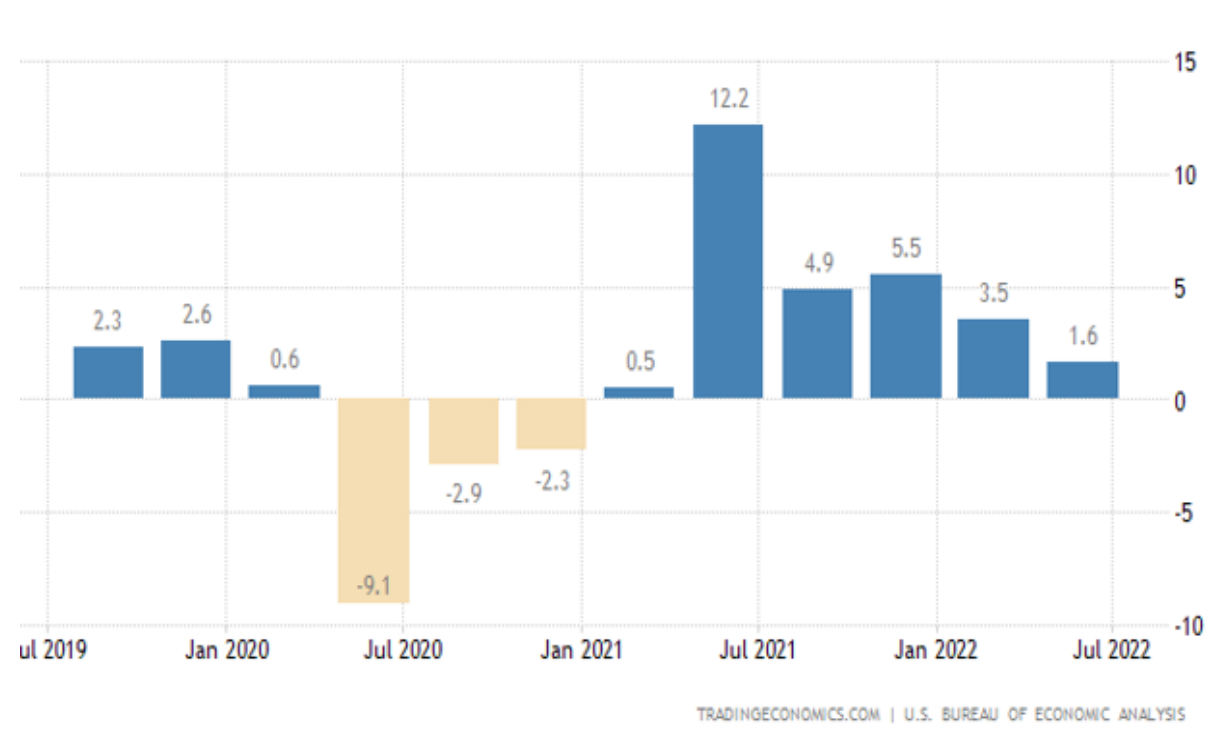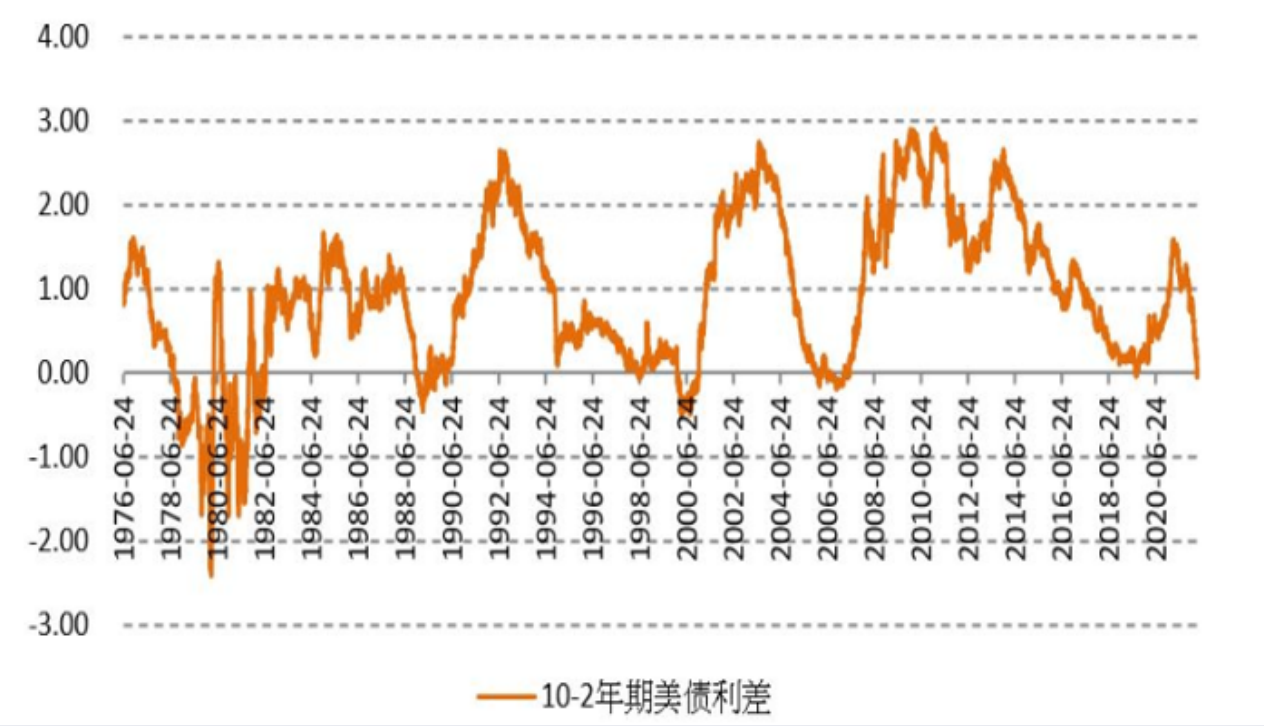Is The U.S. Headed For Another Recession?
US bond yields curve are inverted again. Is recession coming?
The market will never be idle, and it can always find new topics by itself. After inflation began to fall and expectations of interest rate hikes weakened, the topic of American recession began to be hyped again. The inverted yield of long and short bonds is regarded as the leading indicator of recession, and the current performance of US GDP is moving closer to the recession signal at the data level. Will the market be in great turmoil as a result?
Definition of Inverted yields curve and Recession
Long-term bond yield & lt; Short-term bond yields are Inverted. Because in theory, the longer the time, the higher the performance of the yield (interest rate), similar to the concept of saving money for interest. Shorter yields and higher yields usually mean some deviation between the pricing of the market and the direction of the central bank. Uncertainty and worries about the future (long-term) make the long-term yield depressed, and inflation expectations also have a great pricing influence.
Economic recession has different definitions and judgments in different countries. In the United States, the more common view is that GDP has declined/negative growth for two quarters or more. Of course, many economists and institutions believe that more comprehensive data are needed to clarify the recession, such as referring to employment, income, corporate profitability and inflation performance. In addition, it is important to note that the recession is not a full-scale collapse as imagined. It takes 10% of GDP to be defined as a depression, and the story of the Great Depression must have been heard a little, which is very tragic. Ordinary recessions, historically, are more like pains or periodic adjustments.
It can be seen that from the current upside-down and GDP performance, it is not unreasonable for market valuation to have a technological recession at the end of this year or early next year. But as mentioned before, even if there is a recession here, it is not a panic situation. In fact, in the past few years, American data have repeatedly given recession expectations, but both the economy and the market have survived. Referring to the current US job market data, it is hard to imagine that it will be linked to the Great Depression.
Therefore, upside-down and high probability of recession will not be the main factors threatening the market.
The United States is not the worst
In fact, even if there is an economic recession in the United States, it is highly probable that it will be at the middle and upper reaches of the world. Under the worse-than-worse mode, the safe haven attribute of US dollar/US assets will obviously lead other countries and regions. Especially those in the eye of the storm will face far more pressure than the United States. US stocks may be regarded as a benchmark indicator, but other markets must lead the decline.
In the case of little room for raising interest rates, geopolitical related topics in the next 6-12 months will be the main tipping point. Europe, for example, at the end of the year, is likely to usher in new variables.
Following last week's content, although the rebound journey of risky assets has not given a clear end signal, the limited upward space is still very obvious. It is a matter of opinion whether to continue to fight for the last 8-10% or give up the fish tail.
$E-mini Nasdaq 100 - main 2209(NQmain)$ $E-mini S&P 500 - main 2209(ESmain)$ $E-mini Dow Jones - main 2209(YMmain)$ $Gold - main 2212(GCmain)$ $Light Crude Oil - main 2208(CLmain)$
Disclaimer: Investing carries risk. This is not financial advice. The above content should not be regarded as an offer, recommendation, or solicitation on acquiring or disposing of any financial products, any associated discussions, comments, or posts by author or other users should not be considered as such either. It is solely for general information purpose only, which does not consider your own investment objectives, financial situations or needs. TTM assumes no responsibility or warranty for the accuracy and completeness of the information, investors should do their own research and may seek professional advice before investing.



.